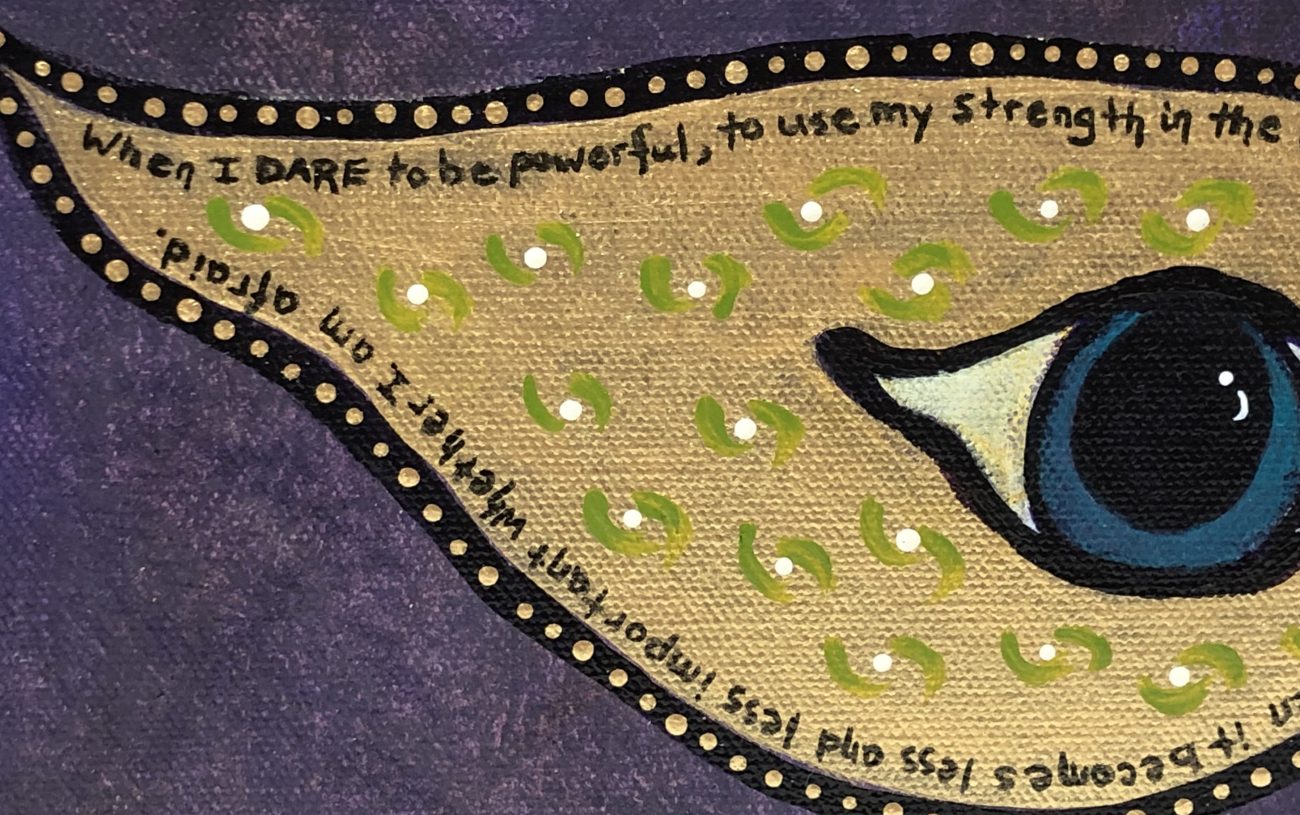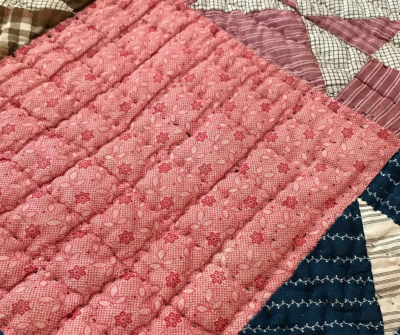Several years ago, before I knew many of you, I applied for a Master of Fine Arts program in creative writing.
It was a bit like making a scrap quilt. A poem here. An editorial there. A few paragraphs of an academic paper on the next page. All glimpses of me as a writer.
And then came the hard part… responding to the big question. What did I, and presumably the other applicants, see as the difference between the three tracks of the program, Fiction, Non-fiction, and Poetry? And for which track did I wish to apply?
Now, you’ve probably already guessed that I’m fluent in libraries and know how to use a dictionary. Even the old, heavy kind, covered in dust. Sadly, that didn’t solve the problem.
I knew what the right answer was, at least as far as technical differences in literary genre. There was just one problem.
I didn’t, then, and still don’t, now, believe in distinct cages into which this work or that might be placed forever.
You see, I spent some time at Pacifica Graduate Institute in California, just after 9/11. While I was there, I learned about notions of chosen myths and functional fictions, which reminded me of my NLP friends. I also learned some more about the filters through which we all take in, sort, and utilize information of various types… a big conversation just now in the art circles where I hang out.
All of which is to say that I responded, in my application, with the statement that I didn’t really see the use in choosing a category. I just wanted more help with my writing, particularly with stories about things I hadn’t experienced yet, which might be sort of like fiction. (Though not necessarily, if they were true for me!)
I was accepted!
To the “narrative non-fiction” track.
I declined, politely, as it seemed like a lot of money and energy to spend on something I’ve been doing since I was six.
Now, you, as a reasonable and intelligent reader, are no doubt wondering why I’m telling you this story just now.
Well, here’s the answer…
Because we just spent a couple of hours hooking up some new electronic gizmos so that my currently cranky hip and I might spend the 4th of July weekend watching Hamilton on the Disney+ channel, along with most of the second and part of the third seasons of The West Wing and two of my all time favorites, the movies, 1776 and The American President.
Hamilton was new for me. The others, old friends. And huge reminders, in this moment, that there really is a whole lot of difference in what we call history and fact and fiction. And a whole lot of overlap.
Or, as writer Kathleen McGowan’s “fictional” history professor explained:
History is not what happened. History is what was written down.
(Which implies more than a few issues of wealth, gender, power, and access to education.)
I, for one, want something pretty close to the nation William Daniels fought for in 1776. Plus, of course, several of the things he lost out on. Fought, though we don’t sing songs about it, during a small pox epidemic.
And I’m sick and tired of the nonfunctional fiction at work in the current administration.
So I checked, again, to be sure that I am still registered to vote in Georgia where that’s more of an issue than one might hope. I made a contribution to an organization sending face masks (the real kind) to nurses and others on the medical front lines. I renewed, like Andrew Shepherd, my membership card for the ACLU. And I made another contribution to the Poor People’s Campaign and their National Call for Moral Revival.
Why???
Because I have two granddaughters growing up in this world and because I want a nation that lives the stirring poetry of its legends and its songs, though not the ones that go with bedsheets. Which means, I suspect, that I need to live them, too.
ps… The quote in the painting is from Audre Lorde, with great thanks.


